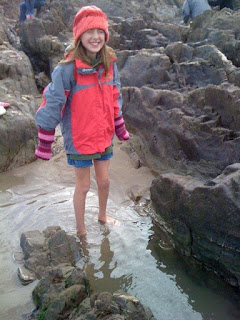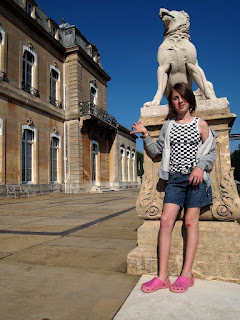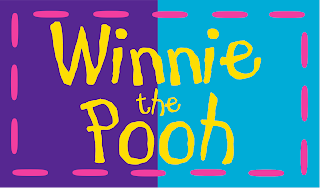My Autism: The Full(ish) Story
Hey!
I hope that everyone, both those who are neurodiverse and those who are not, is having an awesome Autism Awareness Week! This week is a great opportunity to share and hear many amazing stories from those on the spectrum, and potentially learn something new whether you are autistic or not! Today, at the halfway mark of the week, I thought that I would share a slightly fuller story of my experience with autism as an autistic person who was diagnosed less than a year ago. Around the time of my diagnosis I did share what that process was like for me. However, many of those who received later ASC (Autism Spectrum Condition) or ASD (Autism Spectrum Disorder) diagnosis will tell you, your story is never quite as simple as having a suspicion, seeing a doctor and being diagnosed. That is what I wanted to talk about today.
In my diagnosis post I spoke about seeing a doctor about my experiences during sixth form (17/18 years old), but this story goes back much further than that. The thing about receiving an ASC diagnosis is that it allows you to retrospectively connect a lot of dots. I was a late talker and even when I did start to speak I was talkative but I tended to struggle socially. I was loud and abrupt, tended to carry on talking long after the other person had lost interest in the topic of conversation, I was obsessive and often had interests that my peers didn't entirely get, I missed social cues, I preferred the company of adults. I also had other 'quirks', I was particular, fussy about food and other sensory inputs, I didn't like change, I was fidgety.
This isn't to say that I think of my autism as the root of all flaws or as a negative. I was also bubbly, excited, friendly and passionate. But it would be a lie to say that I had an easy time socially. By the time I was 7 I had already been highlighted as a bit of an oddball as well as a teacher's pet who never broke the rules by my peers, and bullying become an issue in my life. The adults around me weren't always very helpful. I was told that if I was 'more normal' I might fit in better, if I was 'less happy' I might get picked on less, not noticing that me over-excitedly telling others about all the things I loved was me attempting to engage while being stuck in a bubble of not knowing how everyone else did it. It's true, kids pick up on difference a lot quicker than adults, we just fail to teach them how good difference is. On top of this failure to support me, despite my continuing difficulties no one ever picked up on the fact that there might be a reason I was struggling. I know it was only 10 years ago but things have changed a lot, and ultimately they saw a girl and they saw academic ability and they saw speech; why would they think autism.
And then secondary school (11-16 years old), and I still had some difficulties.People still struggled to engage with me and for some people the response to that was still bullying. The issue with justifying bullying those who are different is that it blames the abuse on the one who is different or struggling rather than the inappropriate response to those who are different or struggling. Teachers didn't blame me anymore but they still seemed uncertain of what to do. I was still the odd kid; I was obsessed with things like Elton John and writing poetry, I missed social cues, I didn't care about the same things, I didn't pick up on the jokes, I still had all those 'quirks'; I felt a disconnect. Even adults sometimes struggled with me as I tried to speak them as a peer; not disrespectfully but just because I thought that was what happened. My tendency to stick with those older than me was still prominent and I befriended a group of year 9s in year 7, until they left and I made some progress with my peers. In year 10 we had a PSHE lesson about this thing called autism. It was characterised by social difficulties, sensory issues, literal thinking, special interests, and loads of other traits I felt entirely connected to. There was only one trait that my teacher gave that I didn't relate to; quietness. I was loud, often to overcompensate, and it was this loudness that often got me into social mishaps, saying the wrong things and speaking when I shouldn't. I asked if I could be a loud person with autism. I was told no.
(Freya is a teenager stood in front of a statue in summer clothing)
It wasn't until a couple of years later when I was in sixth form with a group of friends who I finally felt got me and listened to me that something clicked when they proposed the idea that I could be autistic. I was still having the same difficulties I'd always had and still had all the same traits, and on top of this I was having new experiences that posed new challenges; understanding boundaries in relationships, alcohol, having complete meltdowns at parties and clubs, emotional management, time management, and still being the oddball, even if people were kinder now. This was all times by a thousand when I entered the chaos of London, university, shared living, student social life and independence. I had and still have amazing friends and tons of fun but I was still struggling. Everything just seemed a little more difficult. I went to my GP twice, once during sixth form and once during my first year of university, and eventually I was heard. I was sent for an initial assessment and a final assessment, in which I was diagnosed within about 20 minutes. It wasn't a close call or a puzzle, I was autistic. I had the traits, the scores, the difficulties; I was never diagnosed because I was 'high-functioning' (HATE that phrase) and female.
That is what autism awareness week is about; being visible as autistic and autism being seen as neither a gift which requires no support nor a terrible hex; as just a part of people's awesomeness which might cause them some additional difficulties. Maybe if we knew more about autism as a it often presents it self in everyone, not just typical male autism, someone would have been able to give me a word to explain my differences earlier and maybe I wouldn't have disliked being a bit of an oddball. It might not have solved everything but people might have been a little more understanding and my mental health might have been a little easier to cope with. I still struggle but now I understand. I'm lucky, I have an amazing family who love me for my weirdness, even if I am their little Sheldon Copper, and great friends who care for me too, but it hasn't been easy and maybe if autism was a little better understood things could have been made a tiny bit easier. Nothing but good can come from awareness.
Maybe start a conversation about autism this week or listen to someone else's story.
Take care!
See you later Alligator!
Freya x
I hope that everyone, both those who are neurodiverse and those who are not, is having an awesome Autism Awareness Week! This week is a great opportunity to share and hear many amazing stories from those on the spectrum, and potentially learn something new whether you are autistic or not! Today, at the halfway mark of the week, I thought that I would share a slightly fuller story of my experience with autism as an autistic person who was diagnosed less than a year ago. Around the time of my diagnosis I did share what that process was like for me. However, many of those who received later ASC (Autism Spectrum Condition) or ASD (Autism Spectrum Disorder) diagnosis will tell you, your story is never quite as simple as having a suspicion, seeing a doctor and being diagnosed. That is what I wanted to talk about today.
(Freya is 12 years old and standing in a rock pool, looking rather cold)
In my diagnosis post I spoke about seeing a doctor about my experiences during sixth form (17/18 years old), but this story goes back much further than that. The thing about receiving an ASC diagnosis is that it allows you to retrospectively connect a lot of dots. I was a late talker and even when I did start to speak I was talkative but I tended to struggle socially. I was loud and abrupt, tended to carry on talking long after the other person had lost interest in the topic of conversation, I was obsessive and often had interests that my peers didn't entirely get, I missed social cues, I preferred the company of adults. I also had other 'quirks', I was particular, fussy about food and other sensory inputs, I didn't like change, I was fidgety.
This isn't to say that I think of my autism as the root of all flaws or as a negative. I was also bubbly, excited, friendly and passionate. But it would be a lie to say that I had an easy time socially. By the time I was 7 I had already been highlighted as a bit of an oddball as well as a teacher's pet who never broke the rules by my peers, and bullying become an issue in my life. The adults around me weren't always very helpful. I was told that if I was 'more normal' I might fit in better, if I was 'less happy' I might get picked on less, not noticing that me over-excitedly telling others about all the things I loved was me attempting to engage while being stuck in a bubble of not knowing how everyone else did it. It's true, kids pick up on difference a lot quicker than adults, we just fail to teach them how good difference is. On top of this failure to support me, despite my continuing difficulties no one ever picked up on the fact that there might be a reason I was struggling. I know it was only 10 years ago but things have changed a lot, and ultimately they saw a girl and they saw academic ability and they saw speech; why would they think autism.
(Freya is young and in nursery, wearing a fireman's helmet)
And then secondary school (11-16 years old), and I still had some difficulties.People still struggled to engage with me and for some people the response to that was still bullying. The issue with justifying bullying those who are different is that it blames the abuse on the one who is different or struggling rather than the inappropriate response to those who are different or struggling. Teachers didn't blame me anymore but they still seemed uncertain of what to do. I was still the odd kid; I was obsessed with things like Elton John and writing poetry, I missed social cues, I didn't care about the same things, I didn't pick up on the jokes, I still had all those 'quirks'; I felt a disconnect. Even adults sometimes struggled with me as I tried to speak them as a peer; not disrespectfully but just because I thought that was what happened. My tendency to stick with those older than me was still prominent and I befriended a group of year 9s in year 7, until they left and I made some progress with my peers. In year 10 we had a PSHE lesson about this thing called autism. It was characterised by social difficulties, sensory issues, literal thinking, special interests, and loads of other traits I felt entirely connected to. There was only one trait that my teacher gave that I didn't relate to; quietness. I was loud, often to overcompensate, and it was this loudness that often got me into social mishaps, saying the wrong things and speaking when I shouldn't. I asked if I could be a loud person with autism. I was told no.
(Freya is a teenager stood in front of a statue in summer clothing)
It wasn't until a couple of years later when I was in sixth form with a group of friends who I finally felt got me and listened to me that something clicked when they proposed the idea that I could be autistic. I was still having the same difficulties I'd always had and still had all the same traits, and on top of this I was having new experiences that posed new challenges; understanding boundaries in relationships, alcohol, having complete meltdowns at parties and clubs, emotional management, time management, and still being the oddball, even if people were kinder now. This was all times by a thousand when I entered the chaos of London, university, shared living, student social life and independence. I had and still have amazing friends and tons of fun but I was still struggling. Everything just seemed a little more difficult. I went to my GP twice, once during sixth form and once during my first year of university, and eventually I was heard. I was sent for an initial assessment and a final assessment, in which I was diagnosed within about 20 minutes. It wasn't a close call or a puzzle, I was autistic. I had the traits, the scores, the difficulties; I was never diagnosed because I was 'high-functioning' (HATE that phrase) and female.
That is what autism awareness week is about; being visible as autistic and autism being seen as neither a gift which requires no support nor a terrible hex; as just a part of people's awesomeness which might cause them some additional difficulties. Maybe if we knew more about autism as a it often presents it self in everyone, not just typical male autism, someone would have been able to give me a word to explain my differences earlier and maybe I wouldn't have disliked being a bit of an oddball. It might not have solved everything but people might have been a little more understanding and my mental health might have been a little easier to cope with. I still struggle but now I understand. I'm lucky, I have an amazing family who love me for my weirdness, even if I am their little Sheldon Copper, and great friends who care for me too, but it hasn't been easy and maybe if autism was a little better understood things could have been made a tiny bit easier. Nothing but good can come from awareness.
(Freya is in their second year of university and kneeling next to a cut out of Snoopy)
Maybe start a conversation about autism this week or listen to someone else's story.
Take care!
See you later Alligator!
Freya x







Comments
Post a Comment